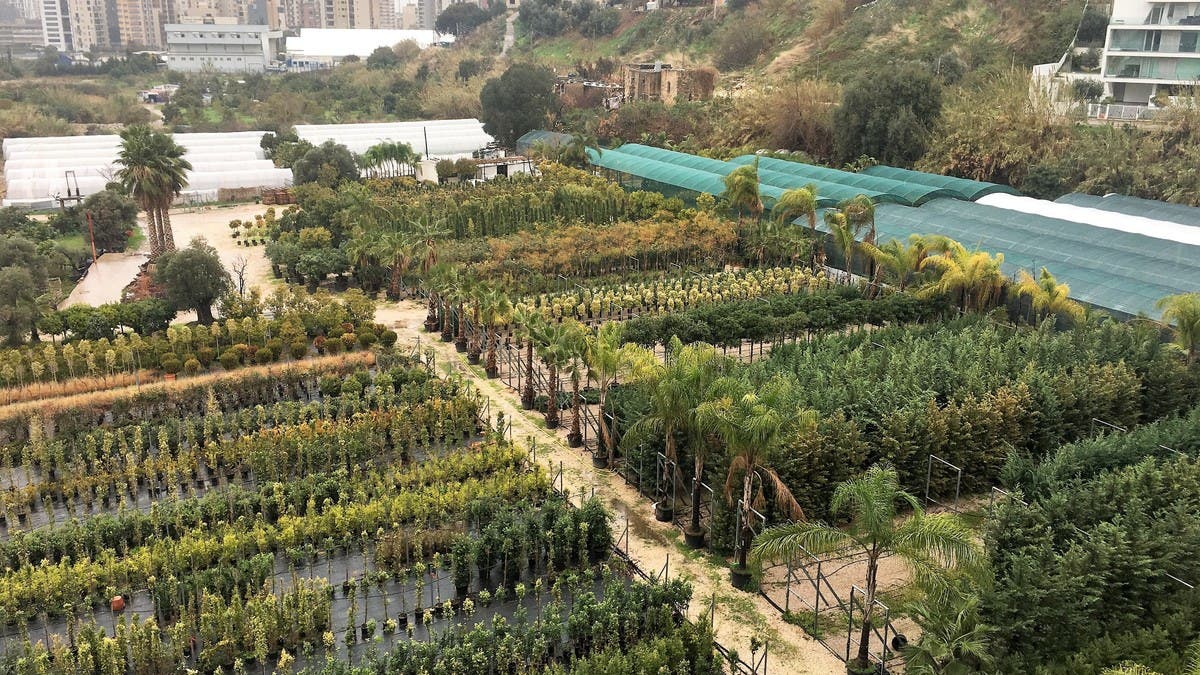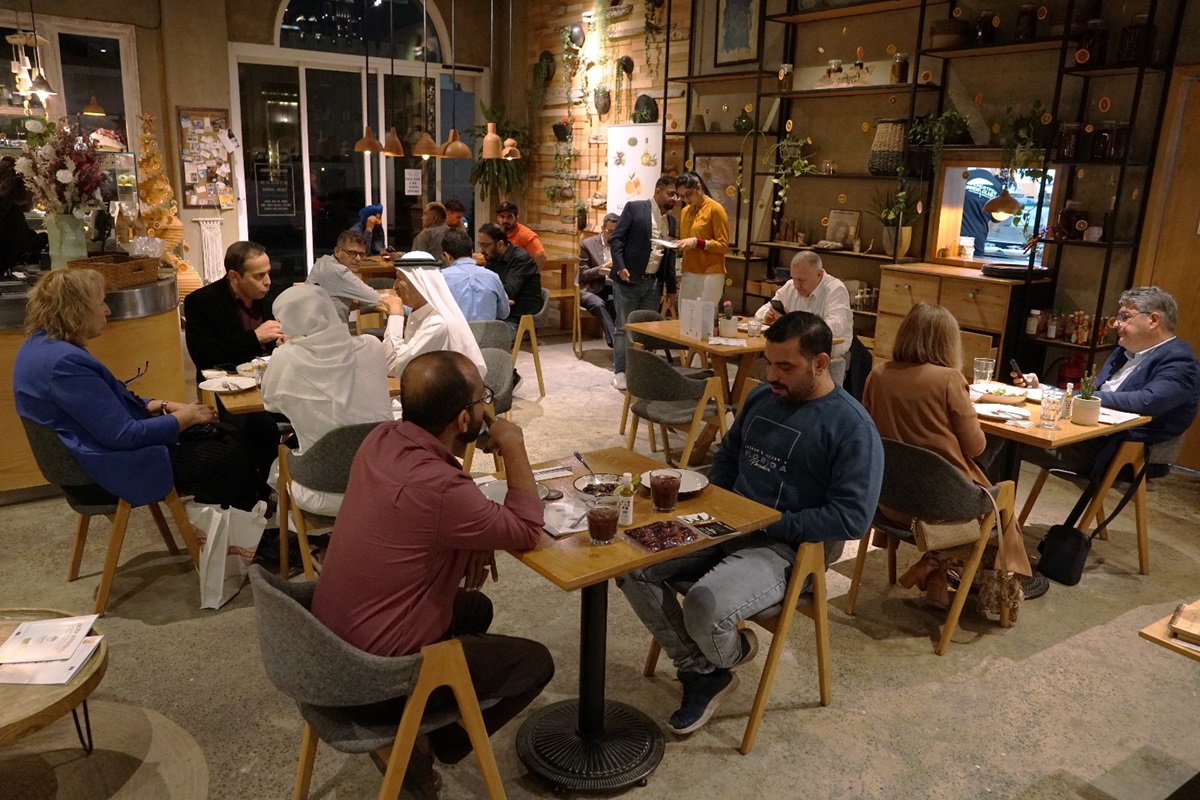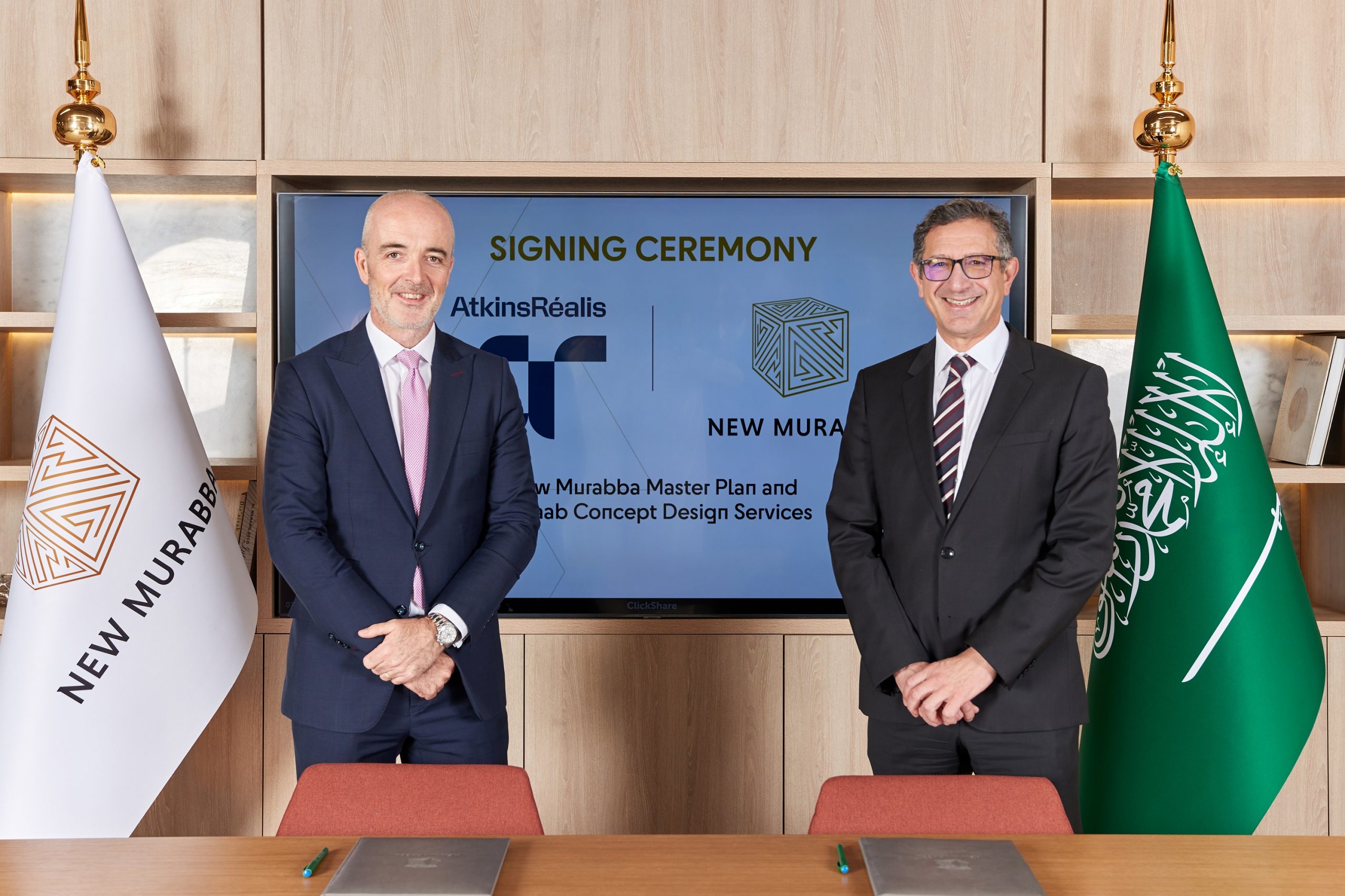Lebanon was once richly forested with cedar forests dating back thousands of years, renowned for their beauty and commemorated in the bible.
Climate change and poor forest management have increased forest fires, overgrazing, and illegal logging. Lebanon’s woodland is paying the price of urbanization and a lack of proper protection.
For the latest headlines, follow our Google News channel online or via the app.
NGOs like the Lebanese Reforestation Initiative (LRI) are filling the gaps left by the state. The group recently launched a new campaign aiming to reforest sites across Lebanon after being on hold for the last few years due to the country’s economic freefall, political unrest, and the COVID-19 pandemic.
“There is a lot of barren land on the upper highlands, and we have records that show that there used to be forests that were cut down or burned and never recovered or were reforested,” LRI director Maya Nehme told Al Arabiya English. “The sites have been left degraded for so long that we have barely had soil, and they’re very steep in some places so are hard to get to.”
Founded in 2010, the NGO has planted about 1.3 million trees with the aid of volunteers. This winter, it grew thousands of native tree species, like cedar, pine, laurel, and juniper, in regions including Qaraoun, Akkar, Metn, and Chouf. The latter three have all suffered devastating forest fires in the last two years.
“We don’t usually intervene before three years after a fire to see if the forest will regenerate by itself, but we’ve had cases where sites that burned five years ago didn’t regenerate, or certain species didn’t come back,” Nehme said. “For example, the pines we have here don’t regenerate well after a fire, while oaks do. If you want to restore what used to be there, we add a few pines within the mix so that we can restore that biodiversity in the site.
“Unfortunately, we don’t have enough law enforcement here, so when a fire happens, the land becomes open to everybody, and people start cutting wood, and then shepherds go in to graze their animals, so whatever is regenerating is eaten by goats,” she added. “A couple of years later, you need to intervene to have a forest back.”
The LRI has also started reforesting abandoned stone and sand quarries. During Lebanon’s civil war, many illegally mined quarries did not follow international standards, leaving massive holes in the ground or sheer cliffs that would never be regenerated naturally.
Before a single tree is planted in a quarry, retaining walls will need to be built, and soil added, as well as studies on the site’s hydrology and geology to ensure correct water channeling. The LRI has teamed up with experts to create a geographic information system (GIS) map detailing the suitability for different native species for every land parcel in Lebanon, providing suitable species for planting in the right areas.
The LRI has also worked closely with nine seedling nurseries to improve techniques for collecting native seeds and cultivating them in larger quantities. Seedlings need to be ordered a year or two in advance. While this has become routine practice, it wasn’t long ago that you couldn’t find native seedlings, and reforestation practices were clumsy at best.
“Starting 2008, reforestation in Lebanon was completely overhauled [from] just digging a hole, putting a tree inside and taking some pictures,” Madga Bou Dagher, a Lebanese plant geneticist who works with the European Forest Institute, said. “Now we have a more scientific method, looking at the genetic diversity of the trees and using only native trees, which were a real game-changer in local reforestation.
“There was reforestation that took place in the 1960s where they planted trees that are now like 60 years old, but we don’t have any clue about their genetic origins,” she added. “They may be cedars, but we’re not sure if the cedars are the Lebanese species.”
Lebanon’s recent crises have created many new challenges. New seedlings need irrigation and protection from grazing animals for the first few years, costing between $5 and 10 per seedling, depending on the location of the tree species.
Imported goods must be paid for in fresh dollars – a luxury for Lebanon’s devalued economy, which has rendered local fundraising not cost-effective. People turn to firewood to keep warm due to rising fuel costs and a lack of electricity, cutting down hundreds of years-old trees. Snow has fallen as low as 500 meters in Lebanon this month.
“You have to make it more attractive for locals to protect the tree than cut it down -that’s a huge challenge this year,” Nehme said. “There’s been a lot of work on awareness and trying to convince people that they can prune trees instead of cutting.
“By law, you’re not supposed to prune anywhere unless you have a permit, and that’s a process that takes time to get,” she added. “People are usually reluctant to go through the process, and they’d rather do it illegally and go cut. This is one of our main concerns this season.”
The most significant cause of forest fires in Lebanon is the intentional burning of waste, weeds, or attempts to clear parts of forestland. Farmers are known to burn agricultural waste on the side of their farms, and municipalities are burning trash due to fewer collections, which can spread to nearby forests. The LRI works closely with local communities to raise awareness for fire prevention.
“We hire local people to do the work, and it’s a way to engage the community. They take ownership for that forest,” Nemhe said. “The first 20 minutes [of a fire] are very crucial. So we’re trying to train people in the towns to keep an eye out and to check the forecast to know when they have a fire risk and prevent people from burning fires at those times.”
Lebanon is still working on a small scale compared with other programs in the region, lacking state support or the labor force for more significant projects. Lebanon’s methodology is sound, but Bou Dagher cautions against excessively planting pines, as many municipalities request, due to pine nuts being a highly-valued product.
“Pines alone create poor forest ecosystems – they are prone to disease and parasites because they’re a homogeneous forest,” she said. “It should always be a tradeoff between economic value and biodiversity.
“We cannot impose on the towns to only care about biodiversity conservation because they will not look after the forest,” she added. “We have to respect the people that are living beside this new forest, but we have to make them aware about the importance of having diversity as well as [a cash crop].”
Read more:
Dubai’s Museum of the Future opens: Everything you need to know
No frosty reception as igloo cafe in Kashmir welcomes visitors
Living longer offers more opportunity to benefit society


 World2 years ago
World2 years ago
 World2 years ago
World2 years ago
 Entertainment7 years ago
Entertainment7 years ago
 World7 years ago
World7 years ago
 Entertainment7 years ago
Entertainment7 years ago




